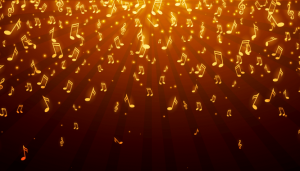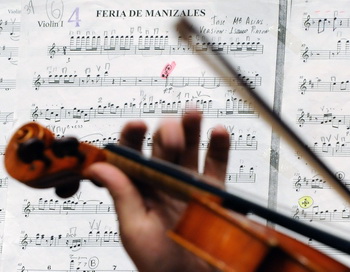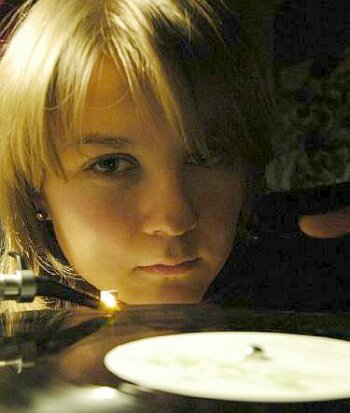The power of music
 Music is one of the most inspirational forms of art. With its rhythm, melody, harmony, dynamics, variety of sound combinations, colors and nuances, the music conveys an endless range of feelings and moods. Her strength lies in the fact that, bypassing the mind, it directly penetrates into the soul, into the subconscious and creates a person’s mood. According to its content, music can evoke the most sublime and noble feelings in a person, promote, for example, a prayerful mood, or, on the contrary, can evoke the most sinful and dark desires.
Music is one of the most inspirational forms of art. With its rhythm, melody, harmony, dynamics, variety of sound combinations, colors and nuances, the music conveys an endless range of feelings and moods. Her strength lies in the fact that, bypassing the mind, it directly penetrates into the soul, into the subconscious and creates a person’s mood. According to its content, music can evoke the most sublime and noble feelings in a person, promote, for example, a prayerful mood, or, on the contrary, can evoke the most sinful and dark desires.
Melodious musical accompaniment from time immemorial accompanied the prayer and service to God (Gen. 4:21, 31:27; Exod. 32:18; Jud. 11:34; Ekk. 2: 8). He lived a thousand years before R.H. King David, endowed by God with outstanding poetic talent, composed inspirational prayers-psalms, accompanying them with playing the harp (“psalter”). After becoming king in Israel, David introduced singing psalms into worship and established regular singers and musicians at the Jerusalem temple. Using great success, the psalms of David became an integral part of both the Old Testament and later Christian worship. In the processing, mainly, of Russian church composers, many psalms of David still adorn Orthodox worship.
Holy Scripture encourages quiet, prayer-tuning singing. For example, the apostle Jacob advises: “Is any one among you suffering? Let him pray. If anyone is merry, let him sing psalms.” We read this advice from the apostle Paul: “Exalt yourself with psalms and hymns and spiritual songs, singing and singing in your hearts to the Lord” (1 Kings 16: 16-23; 2 Kings 6: 5-23; 2 Kings 22: 1; 1 Ch. 6:31; 2 Ch. 29:25; James 5:13; Eph. 5:19; Col. 3:16).
The philosopher Plato (427-347 BC). He believed that God put the disposition in man to create and combine sounds not randomly and accidentally, but in imitation of the harmony of the spiritual world (Republican) Aristotle (384-322 BC). noted the importance of music in the education of young people. In his “Politics” he wrote that “the influence of music is so great that its various forms and genres can be classified according to their influence on the character of a person.”
The musicologist of the 6th century, M. S. Bthius, wrote: “Music is a part of our nature. It can either ennoble or degrade our behavior” (De Institutional Musica). A. W. Töser noted: “If you love and listen to the wrong music, your inner life will wither and die” (Thé Clósing of the Amerique Mind, NeW York, Simon and Schuster, 1987, pp. 68-81).
Modern medical experiments have established that the beneficial effects of calm classical music on a person’s healing process. About this writes, for example, Dr. Clyde L. Nash Jr. surgeon at St. Luke’s Hospital in Cleveland, Ohio. Another doctor Dr. Mathew H. M. Lee, director of the Rush Rehabilitatio Institute of the New York University Medical Center, said: “We have the opportunity to confirm the beneficial effects of music in alleviating complications during illness, in improving the health of patients and in reducing their hospital stay.” Of course, “music is not a magic tool,” said Cleveland’s music therapist, Decoria Lané, “but both in the hospital and at home, she is a powerful tool for treating young people and the elderly” Aug. 1992, which provides other documentary data on the benefits of calm music). Several years ago, American magazines wrote about the experiments on the influence of music on plants. It was found that calm music contributes to the growth and development of some bushes and flowers, and they languish from violent music. In Germany, began to use calm music during the milking of cows. These experiments suggest that not only people react to music.
Dr. Howard Hаnеn, former director of the Eastmon School of Music, commented in the American Journal of Psychiatry (Vol. 99, p. 317): “Music is a particularly elusive art that has innumerable emotional connotations. It consists of many elements, and in accordance with their proportion, she can soothe or cheer, ennoble or vulgarize, dispose to meditation or violence. She is a powerful force for both good and evil “(US Today, Oct. 11, 1985).
Music is not only entertainment, but to a certain extent “preaching.” It invariably expresses the composer’s worldview and can be a powerful weapon of both good and evil. God, inspiring well-meaning composers, through their music influences people’s spiritual mood. But Satan is also trying to do the same through people turned away from God. Although everyone has the right to adhere to his personal tastes when choosing music, however, one should not lose common sense in an objective assessment of musical works. The Christian must be able to distinguish the good from the evil in music and in movies, in art and literature. In all these branches of art there is often a mixture of good and evil.



